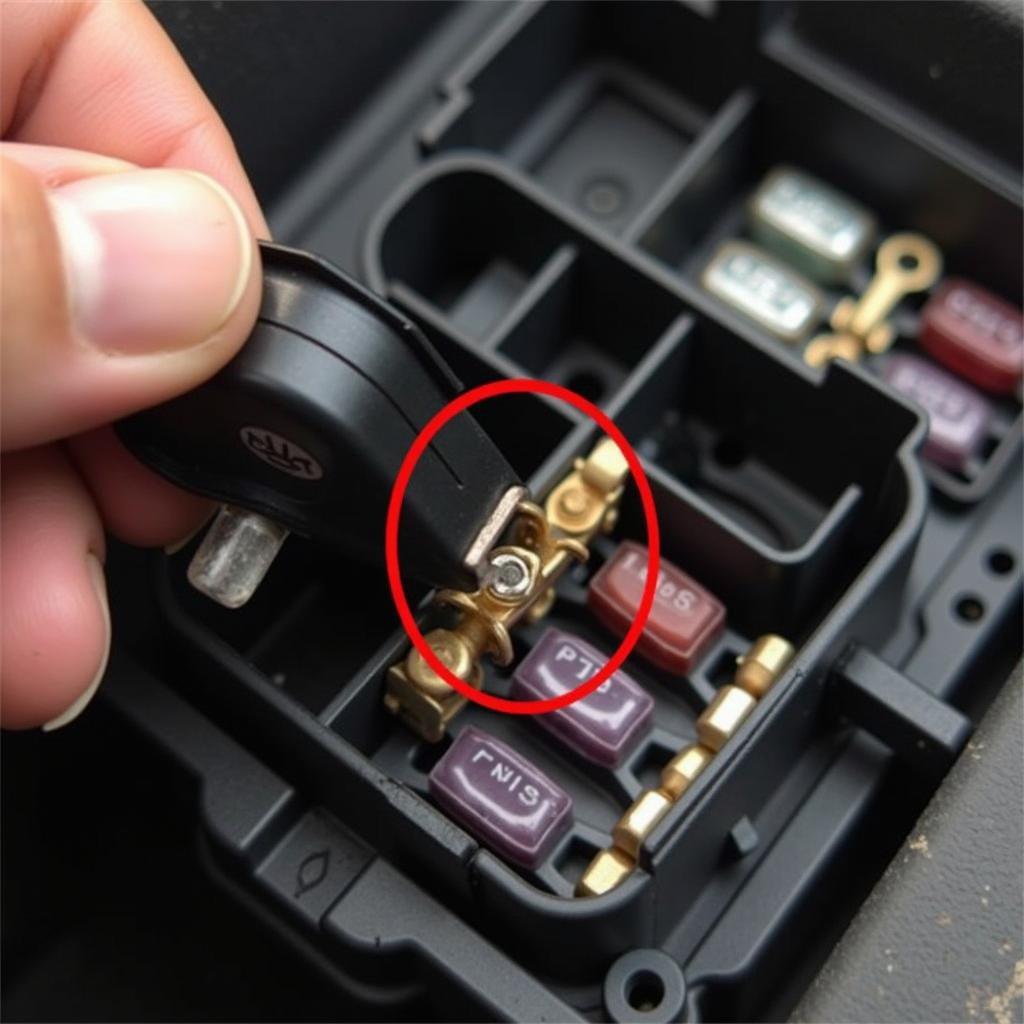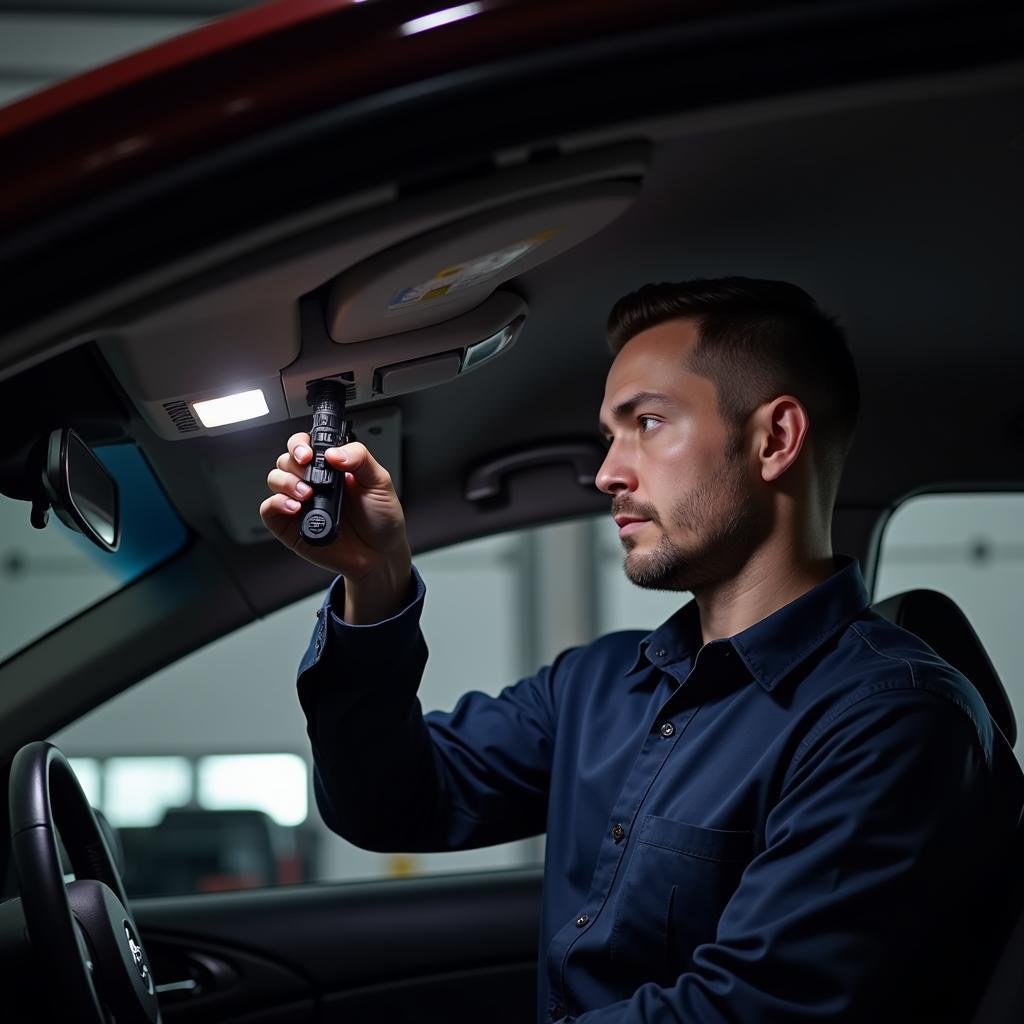You just replaced your car battery, expecting a smooth start, but nothing happens. This is a frustratingly common scenario. Instead of immediate relief, you’re left wondering why your car won’t start after replacing the battery. This article will guide you through common causes and solutions, helping you get back on the road.
As a specialist in automotive electrical engineering, with expertise in remote diagnostics, programming, and software installation, I frequently encounter this issue. Many times, the problem isn’t the new battery itself, but a related system triggered by the disconnection and reconnection process. Let’s explore the possible culprits and how to address them.
Common Reasons Your Car Won’t Start After a Battery Change
There are several reasons why your car might refuse to start even with a brand new battery. Some are simple oversights, while others require a bit more investigation.
Loose or Corroded Battery Terminals
This is often the easiest fix. Double-check that the battery terminals are clean and tightly connected. Corrosion can interrupt the flow of electricity, preventing the starter from engaging. Clean the terminals with a wire brush and baking soda solution. Secure the clamps firmly, ensuring a good connection.
Faulty Starter
While less common, a faulty starter can mimic a dead battery. If you hear a clicking sound when you turn the key, the starter solenoid might be engaging, but the starter motor itself might be failing. Testing the starter requires some electrical know-how, so consulting a mechanic might be necessary.
Blown Fuses
Disconnecting and reconnecting the battery can sometimes blow a fuse related to the starting system. Check your car’s owner’s manual to locate the fuse box and identify the relevant fuses. Look for a broken filament within the fuse. If you find a blown fuse, replace it with a new one of the same amperage.
 Identifying a Blown Car Fuse
Identifying a Blown Car Fuse
Anti-theft System Issues
Modern cars often have sophisticated anti-theft systems that can be triggered by disconnecting the battery. This might require a specific reset procedure, such as locking and unlocking the car doors with the fob key fob or entering a security code. Consult your owner’s manual for the correct procedure for your car model. If you’re struggling to disable the system, consider checking our guide on how to shut off the anti-theft device in your car.
Parasitic Drain
Even with the ignition off, certain components can draw power from the battery. A parasitic drain can discharge a new battery surprisingly quickly. This can be caused by a faulty component, such as a glove box light staying on or a malfunctioning alternator. Diagnosing a parasitic drain requires specialized equipment, so consulting a mechanic is recommended.
What To Do If Your Car Still Won’t Start
If you’ve checked all the common causes and your car still won’t start, it’s time to seek professional help. A qualified mechanic can diagnose more complex electrical issues and perform necessary repairs.
Expert Insights
“Often, drivers overlook simple connections,” says automotive electrical engineer, David Miller. “Before assuming a major problem, always double-check the terminals and fuses.”
Another expert, Sarah Johnson, an automotive technician with over 20 years of experience, adds, “Anti-theft systems can be tricky. Always consult your owner’s manual for the specific reset procedure for your vehicle. This can save you a lot of time and frustration.”
Conclusion
Experiencing a no-start situation after replacing your battery can be incredibly frustrating. However, by systematically checking the common causes outlined in this article, you can often pinpoint the problem and get your car started. If the issue persists, don’t hesitate to consult a qualified mechanic to diagnose and resolve any underlying electrical problems. Remember, safety first, and sometimes a professional touch is the best solution when your car won’t start after replacing the battery.
FAQ
- Why would my car need a battery replacement? Car batteries typically last 3-5 years and degrade over time. Signs of a failing battery include slow cranking, dimming lights, and clicking sounds when turning the key.
- Can I jump-start a car with a new battery that won’t start? Yes, you can try jump-starting the car. If it starts, it could indicate a problem with the charging system. If it doesn’t start, the issue lies elsewhere.
- Is it harmful to disconnect the battery in a modern car? Generally, it’s safe to disconnect the battery, but it can trigger anti-theft systems or reset some electronic settings. Have your radio code handy.
- How can I prevent my car battery from dying again? Ensure proper maintenance, limit short trips, and avoid leaving accessories on when the engine is off. Address any parasitic drains promptly.
- Can a bad alternator cause a new battery to drain? Yes, a failing alternator won’t recharge the battery properly, leading to a drain and eventually a no-start condition. The seat belt warning light won’t go off in some vehicles can be related to electrical issues.
- Should I disconnect the battery when working on the electrical system? Yes, always disconnect the negative terminal first for safety. This prevents accidental shorts and potential damage.
- What should I do if the buckle seat belt warning continues even after the seat belt is fastened? This could indicate a faulty sensor or wiring issue. It’s best to have it checked by a mechanic.

